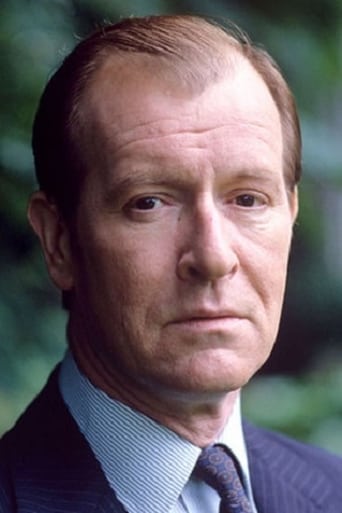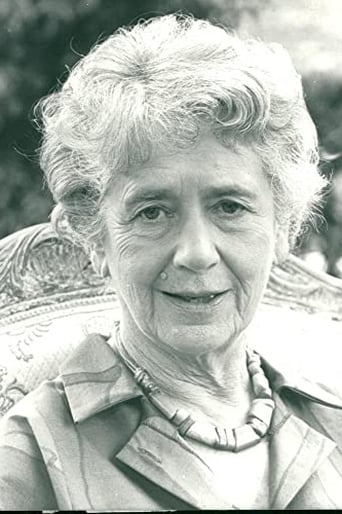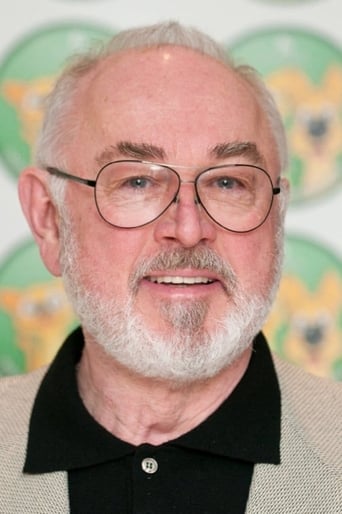A Perfect Spy (1987)
This is the story of Magnus Pym, from his childhood to the end of his career in middle age. As a young man, there is little doubt that his father Rick was the most influential character in his life. Rick was a raconteur, con man, thief, black marketer and all in all, simply larger than life. From a young age, Rick included Magnus in his schemes and the young man learned that you would do anything for the ones you love. When a university student in Switzerland, Pym meets the other person who will have the greatest influence in his life, Axel, a Czech refugee. As Pym enters his career in the British Secret Service, his relationship with Axel and the values he developed in childhood lead him down his own path of betrayal and loyalty.
Watch Trailer
Free Trial Channels
Cast


Reviews
brilliant actors, brilliant editing
What a freaking movie. So many twists and turns. Absolutely intense from start to finish.
I am only giving this movie a 1 for the great cast, though I can't imagine what any of them were thinking. This movie was horrible
what a terribly boring film. I'm sorry but this is absolutely not deserving of best picture and will be forgotten quickly. Entertaining and engaging cinema? No. Nothing performances with flat faces and mistaking silence for subtlety.
There is a brilliant lesson of sorts here about narrative depth, but you must know the book. Lavishly conceived by Le Carre as his magnum opus, the book is not any other spy thriller you picked up on an airport, it's one of the most tantalizing I know. The center is this, a mysterious man, posing as someone else, is holed up in a small room in Dorset overlooking the ocean and recalls a whole journey through life. The childhood stream-of-consciousness where he attempts to be Faulkner without conquering the madness doesn't work; so much else does. It has a strong sense of presence in several places from Greek islands to Washington, the center of control. It has a sense of anxious premonition about the extents of control. It has a narrator writing a memoir while efforts are underway to apprehend him before he defects to the other side. It has several relationships of ambiguous love defined in his imagination. It has a disappearance in the middle of the night and a strange encounter in a Czech barn.This, it just won't do.The most glaring fault by far is that they simplified the structure, making it a linear telling in one go (practically). The childhood segment works even less because when seen, it loses the shroud of memory. Seeing Rick is never going to be as powerful as sensing him move through room's of the son's memory. It still covers most of the narrative ground but we lose the premonition, we lose the mystifying sense of machinery set in motion long ago and discovered only when the ground beneath our feet shifts, we lose the depth of the betrayal of love. We lose it all and get a nicely groomed play. Its idea of profound emotion is actors grimacing in close up; I was stunned to see that it's from the late 80s, it looks 20 years older.I don't know if this is watchable fiction, maybe it is, but it's a complete catastrophe where it should go beyond it and give us lives, contact, sense, everything Le Carre strove to have it slide through portals of remembrance is reduced to the Cliff notes version.But something weird happens. To see this and to have known the book is to have images of something I've known as deeper, more elusive, more rending and this, for me, was to recall even the book as deeper than Le Carre managed with words. A powerful scene in the film exemplifies just this, when his wife, alarmed by events, begins to read an unfinished manuscript he's left behind, ostensibly a novel he's writing (he says), but she suspects it's more, we know it's more, it's the disguised recollections of a lifetime (this is completely flattened in this linear telling).She cries as she reads about betrayal as hope, as salvation, as an adventure for the imaginative soul, but oh how much more maddeningly full is the life behind the words. His wife, his mentor in the service, will they ever truly know? To know this is to realize how much we won't truly know in turn. There's only so much you can say and so easy to misunderstand. What Le Carre doesn't put to words around this life deserves its Tarkovsky film.
If Smiley's People and Tinker Tailor Spy were about the "how" of espionage, A Perfect Spy is about the "who".Whereas the first two were essentially two long investigations, A Perfect Spy, which begins as a non-linear story line in the novel, is about the socio-psychological components of what goes into making a spy.While those who have read the book will find this adaptation surprising, it is also one of the finest. The story is linear, starting with a young Magnus, his con father, and his acolytes.The background of the series is about the issue of what I would call inverted loyalties. Time and again, we see Magnus' relationship with his father as one where the former is criminally tolerant and indulgent, as any son with a deranged father might. During Magnus' childhood, and through his mentoring by Jack Brotherhood, we see an individual with divided loyalties, but seemingly true to both.What this creates for the viewer is the impression that the good guys are actually bad, and vice versa, without resorting to any literary or artistic device. For example, we see immediately that Axel is initially harmless, but while he does something objectionable, nevertheless remains very attaching. For Magnus, it is the same. The buildup of his character during childhood only strengthens our sympathy for him. The reality is only revealed when Egan's character towards the end, when the Americans are catching on) starts to decompose.To my taste, the series spends too much time on the childhood of the hero character. There are also devices taken from the book that are clearly unnecessary for the series (the green filing cabinet for example), and the relationship with Brotherhood could have been expanded, for the sake of balance with that of Axel Hampel.Not to be sexist, but the women in the series are simply annoying. Also, their role in Magnus', Jack's professional lives and the spy craft is merely as sex-pots, which doesn't always conform to the zeitgeist. Although this was perhaps truer in the 1970s, when the novel's action was taking place. Also, some people don't seem to age, yet, they've been apparently working since the end of WW2; i.e. Jack Brotherhood, from 1947 to 1987 without a grey hair...Overall, however, we see compelling acting. Egan, MacAnally, Weigang at the summit of their art.The last ten minutes of the series is the finest acting ever filmed or seen.
Having just seen the A Perfect Spy mini series in one go, one can do nothing but doff one's hat - a pure masterpiece, which compared to the other Le Carré minis about Smiley, has quite different qualities.In the minis about Smiley, it is Alex Guiness, as Smiley, who steals the show - the rest of the actors just support him, one can say.Here it is ensemble and story that's important, as the lead actor, played excellently by Peter Egan in the final episodes, isn't charismatic at all. Egan just plays a guy called Magnus Pym, who by lying, being devious and telling people what they like to hear, is very well liked by everyone, big and small. The only one who seems to understand his inner self is Alex, his Czech handler.Never have the machinery behind a spy, and/or traitor, been told better! After having followed his life from a very young age we fully understand what it is that makes it possible to turn him into a traitor. His ability to lie and fake everything is what makes him into 'a perfect spy', as his Czech handler calls him. And, by following his life, we fully understand how difficult it is to get back to the straight and narrow path, once you've veered off it. He trundles on, even if he never get anything economic out of it, except promotion by his MI5 spy masters. Everyone's happy, as long as the flow of faked information continues! Magnus's father, played wonderfully by Ray McAnally, is a no-good con-man, who always dreams up schemes to con people out of their money. In later years it is his son who has to bail him out, again and again. But by the example set by his dad and uncle, who takes over as guardian when his father goes to prison, and his mom is sent off to an asylum, Magnus quickly learns early that lying is the way of surviving, not telling the truth. At first he overdoes it a bit, but quickly learn to tell the right lies, and to be constant, not changing the stories from time to time that he tell those who want to listen about himself and his dad.His Czech handler Alex, expertly played by Rüdiger Weigang, creates, with the help of Magnus, a network of non-existing informants, which supplies the British MI5 with fake information for years, and years, just as the British did with the German spies that were active in the UK before and during the war - they kept on sending fake information to Das Vaterland long after the agents themselves had been turned, liquidated or simply been replaced by MI5 men.The young lads who play Magnus in younger years does it wonderfully, and most of them are more charismatic than the older, little more cynic, and tired, Pym, played by Egan. But you buy the difference easily, as that is often the way we change through life, from enthusiasm to sorrow, or indifference.Indeed well worth the money!
Without doubt the best of the novels of John Le Carre, exquisitely transformed into a classic film. Performances by Peter Egan (Magnus Pym, The Perfect Spy), Rudiger Weigang (Axel, real name Alexander Hampel, Magnus' Czech Intelligence controller), Ray McAnally (Magnus' con-man father) and Alan Howard (Jack Brotherhood, Magnus' mentor, believer and British controller), together with the rest of the characters, are so perfect and natural, the person responsible for casting them should have been given an award. Even the small parts, such as Major Membury, are performed to perfection. It says a lot for the power of the performances, and the strength of the characters in the novel that, despite the duplicity of Magnus, one cannot help but feel closer to Magnus and Axel than to Jack Brotherhood and the slimy Grant Lederer of U.S. Intelligence. I have read the book at least a dozen times, and watched the movie almost as many times, and continue to be mesmerized by both. If I had one book to take on a desert island, A Perfect Spy would be the choice above all others.








